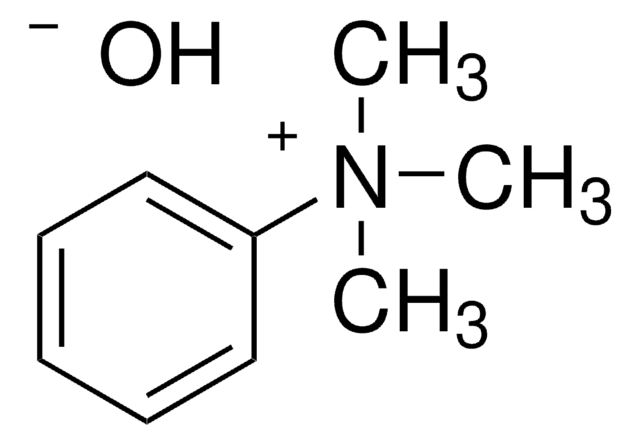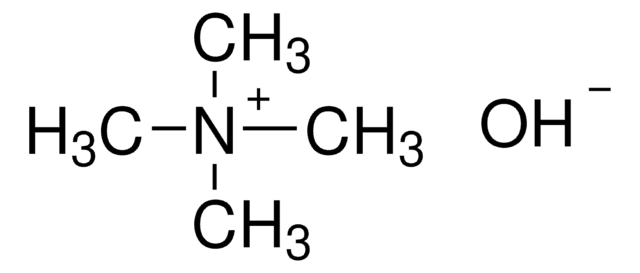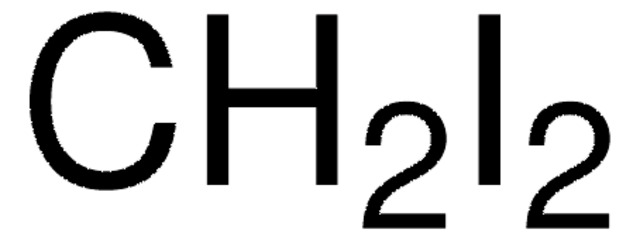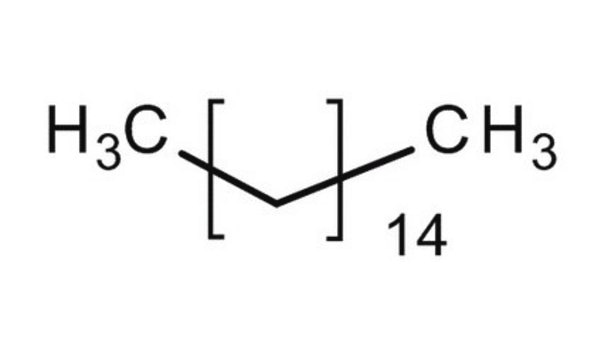80656
Sodium polytungstate solution
~85% in H2O, for separation of minerals
About This Item
Recommended Products
grade
for separation of minerals
form
solution
composition
Hexasodium dihydrogen-dodecawolframate monohydrate, ≥70-90%
concentration
~85% in H2O
technique(s)
centrifugation: suitable
color
cream white,
pH
3.0 at 4,000 g/l(-20 °C68 °F)
solubility
water: soluble
density
5.470 g/cm3-20 °C (2(68 °F))
suitability
suitable for IR spectroscopy
application(s)
general analytical
SMILES string
[Na+].[Na+].[Na+].[Na+].[Na+].[Na+].O=[W](=O)=O.O=[W](=O)=O.O=[W](=O)=O.O=[W](=O)=O.O=[W](=O)=O.O=[W](=O)=O.O=[W](=O)=O.O=[W](=O)=O.O=[W](=O)=O.[O-][W]([O-])(=O)=O.[O-][W]([O-])(=O)=O.[O-][W]([O-])(=O)=O
InChI
1S/6Na.39O.12W/q6*+1;;;;;;;;;;;;;;;;;;;;;;;;;;;;;;;;;;6*-1;;;;;;;;;;;;
InChI key
AZCSOJKJFMWYCX-UHFFFAOYSA-N
Looking for similar products? Visit Product Comparison Guide
Related Categories
Application
- Transparent sodium polytungstate polyoxometalate aquatic shields toward effective X-ray radiation protection: Alternative to lead glasses.: This study explores the development of transparent sodium polytungstate polyoxometalate-based shields for effective X-ray radiation protection. The research demonstrates that these aquatic shields can serve as a non-toxic alternative to traditional lead glasses, offering high transparency and efficient radiation attenuation. This makes them suitable for various applications in medical and industrial X-ray protection (Hashemi et al., 2022).
- Hybrid of sodium polytungstate polyoxometalate supported by the green substrate for photocatalytic degradation of auramine-O dye.: This paper investigates the photocatalytic properties of sodium polytungstate polyoxometalate supported on a green substrate for the degradation of auramine-O dye. The study highlights the efficiency of this hybrid material in environmental applications, particularly in wastewater treatment, by utilizing photocatalytic processes to break down harmful dyes (Mousavi et al., 2022).
- Bioinorganic Synthesis of Sodium Polytungstate/Polyoxometalate in Microbial Kombucha Media for Precise Detection of Doxorubicin.: This research presents a novel biosensor developed using sodium polytungstate/polyoxometalate synthesized in a microbial kombucha medium. The biosensor shows high sensitivity and precision in detecting doxorubicin, a chemotherapeutic drug, in biological fluids. This innovative approach enhances the biosensor′s performance, making it suitable for clinical applications in drug monitoring and pharmacokinetics studies (Mousavi et al., 2022).
signalword
Danger
hcodes
Hazard Classifications
Aquatic Chronic 3 - Eye Dam. 1
Storage Class
10 - Combustible liquids
wgk_germany
WGK 2
flash_point_f
Not applicable
flash_point_c
Not applicable
ppe
Eyeshields, Faceshields, Gloves, type ABEK (EN14387) respirator filter
Choose from one of the most recent versions:
Certificates of Analysis (COA)
Sorry, we don't have COAs for this product available online at this time.
If you need assistance, please contact Customer Support.
Already Own This Product?
Find documentation for the products that you have recently purchased in the Document Library.
Our team of scientists has experience in all areas of research including Life Science, Material Science, Chemical Synthesis, Chromatography, Analytical and many others.
Contact Technical Service







